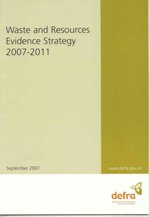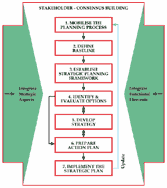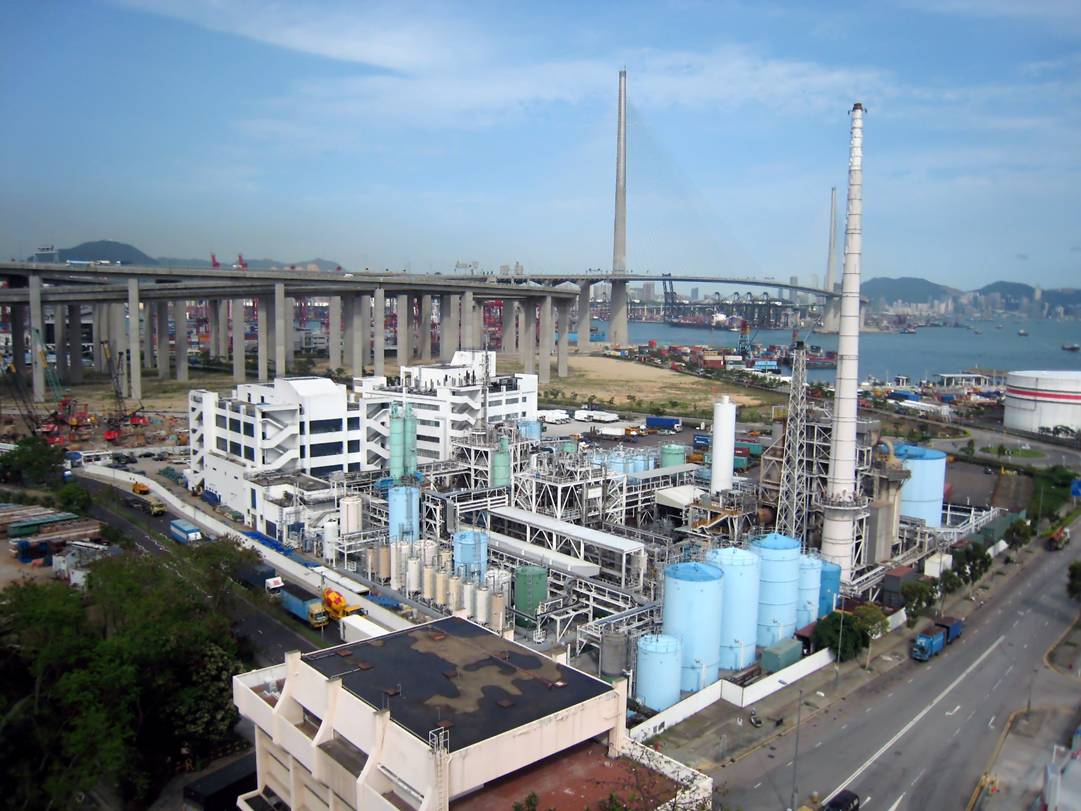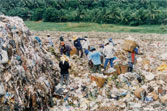Municipal Solid Waste Management
History of Waste Management
Chemical Safety & Contaminated Land
Waste & Resources Research
Professor David C Wilson has advised the Department of Environment, Food and Rural Affairs (Defra)’s Waste and Resources Research Programme, now called the Waste and Resources Evidence Programme (WREP), since its inception.
Professor Wilson was appointed as chair of Defra’s Waste and Resources Research Advisory Group (WRRAG) when it was first established in February 2004, with the initial brief of advising on the development an integrated strategy for the UK’s waste and resources research over the next 10 years, in order to provide a sound evidence base for future policy making. DCW was reappointed in November 2004 as Chair of a new WRRAG, which was constituted to advise on the first phase of programme implementation, culminating in development of a new 3-year strategy published in September 2007. He continues to provide strategic advice to WREP. He also represents the evidence and research community on Defra’s Waste Stakeholder Group, advising on implementation of the Waste Strategy for England 2007. He co-ordinates a collaborative programme between WREP and CIWM, to support around 15 Masters students each year to prepare their thesis on a topic related to waste and resources policy.
WREP has now delivered some 100 research and other evidence projects since its inception. Further details and access to project reports is available via the Defra website. DCW co-authored a paper in the Proceedings of the Institution of Civil Engineers which provided a progress report on the programme over its first 3 years. WREP has acted to some extent as a ‘pilot’ for the development of Defra’s wider approach to evidence and innovation, aiming to put into practice the concept of a knowledge-based approach to policy making (known in the UK as evidence-based policy making (EBPM)). DCW was the lead author of a paper on Using research-based knowledge to underpin waste and resources policy, which used WREP’s experiences as a case study. The four authors were presented with the James Jackson Award for the best paper in 2007, at the CIWM Professional Awards Ceremony on 16 May 2008.
DCW’s current work with Defra builds not only on his national and international work on developing policy and strategy in hazardous and solid waste management, but also on his early work in waste research. For example, in the 1970s and early 1980s, he ran the Waste Research Unit for the UK Department of the Environment (DoE) for six years and wrote two editions of the ‘Gas Works Report’, the first definitive guidance on contaminated land in the UK, for the DoE. In the later 1980s and early 1990s, he also directed major research projects for DoE and the Department of Energy (ETSU) related to landfill and landfill gas; and directed a major 5-year environmental technology demonstration programme for the Department of Trade and Industry (DTI).

As chair of WRRAG, DCW oversaw work to develop the current Defra Waste and Resources Evidence Strategy 2007-2011.
DCW is active in his own research at Imperial College. His current research interests are broad, including informal sector recycling in developing countries; the UK’s adaptation to changes in hazardous waste regulations in the 2000s; the effectiveness of policy instruments (e.g. producer responsibility and the Clean Development Mechanism); and waste history / development drivers in waste management.

Prof David C Wilson’s unrivalled international experience in this field was the basis for ERM being selected to prepare the World Bank’s definitiveStrategic Planning Guide for Municipal Solid Waste Management, for which he was the principal author. The SPG provides a step-by-step guide to the planning process and to the substantial issues that need to be considered.
Strategic Planning for Waste Management
Professor David C Wilson began his career in Waste Management in 1974, researching his doctoral thesis on planning for municipal solid waste management, which led to the publication of his standard textbook Waste Management: Planning, Evaluation, Technologies by Oxford University Press (1981).
Since that time, DCW has always been active in strategic planning for waste management. He has been responsible for developing national strategies for waste management in Poland, Turkey, Philippines, Viet Nam, Hungary and Romania; and for strategic planning projects in India, Sri Lanka, Thailand, China, Ukraine and the Russian Federation. He chaired the 4 UK Waste Strategies Group workshop in January 2007.
Northern Ireland: DCW began work on development of the Waste Management Strategy for the Department of the Environment in January 1997. He was involved at each stage of strategy development and implementation, including the first Strategy published in March 2000, and culminating in the launch of the revised Strategy ‘Towards Resource Management’ in March 2006.
Hong Kong: DCW was resident project manager in 1982-83 for the development of a computerised waste management planning model, which was used to develop the Waste Disposal Plan, published in 1989. He worked from 1987 on a https://corazoninc.com/propecia/ number of facility implementation projects, including most recently the materials recovery and recycling facility (2000). DCW was responsible for a ground-breaking study from 1994-96 to prepare a comprehensive waste reduction strategy for Hong Kong; the resulting 10-year plan was adopted by the HK Government in 1998. More recently, he acted as an advisor to the team developing a new Policy Framework for the Management of Municipal Solid Waste (2005-2014). He is currently advising on the development of a producer responsibility framework for glass containers.
Hazardous & Industrial Wastes
Professor David C Wilson has been involved with hazardous waste policy issues throughout his 35 year career. He currently represents CIWM on the Defra Hazardous Waste Steering group, as well as on the Hazardous Waste Forum (HWF), for whom he wrote their first Action Plan. He previously chaired the Northern Ireland HWF from 2003-2007.
From 1977, DCW ran the Department of the Environment’s hazardous Waste Research Unit. In 1981, he was rapporteur for the UNEP/ WHO working group which developed the first international guidance on hazardous waste management (HWM). In 1989, he edited the World Bank’s Technical Manual on The Safe Disposal of Hazardous Wastes: the Special Problems of Developing Countries. Since 1984, he has represented CIWM on the International Solid Waste Association (ISWA)’s Working Group on Hazardous Wastes (WGHW). With the WGHW, he compiled two definitive international comparisons, in 1987 and 1999, analysing how different countries have implemented their HWM systems; and with WGHW, UNEP and the Basel Convention, he developed the multiple award winning Training Resource Pack for Hazardous Wastes in Developing Countries (2002).
A key conclusion of DCW’s policy analysis is that all countries have developed their HWM systems in a series of steps. Over the last 25 years, much of his international project work in hazardous wastes has involved helping countries take the next appropriate steps in developing their management systems. Examples include developing a national strategy in Vietnam and putting in place the first national legislation; and developing and demonstrating a regulatory control system in Sverdlovsk Oblast in Russia. Other projects have been in, e.g., Hungary, Ukraine, Bahrain, India, Sri Lanka, China, Philippines and Chile. More recently, DCW was an advisor to the team revising Ireland’s National Hazardous Waste Management Plan, which was published in September 2008.
The UK was one of the early pioneers of hazardous waste management in the 1970s, both in terms of enacting legislation and developing treatment facilities. But while other countries gradually built up their capacity for relatively high-tech treatment, the UK chose to rely on the science of controlled co-disposal with municipal solid wastes, a practice banned under the EU Landfill Directive from 16 July 2004. The demise of co-disposal has led to the UK facing whatDCW describes as a classic ‘implementation conundrum’; while the government waits for industry to invest in treatment facilities, the industry waits for the government to give ‘regulatory certainty’ before making investment decisions. Defra established the Hazardous Waste Forum (HWF) in 2003 to oversee this transition: DCW represents CIWM on the HWF, and wrote theirAction Plan published in December 2003. The saga is still continuing: DCW represents CIWM on Defra’s Hazardous Waste Steering Group established in 2008, and which is contributing to development of a new strategy for hazardous waste treatment. DCW also chairs CIWM’s Special Interest Group on Hazardous Wastes.

The Chemical Waste Treatment Centre (CWTC) in Hong Kong, the first comprehensive hazardous waste treatment plant to be developed outside of the OECD. Prof David C Wilson was involved in developing this facility from 1987 to 1994, leading the team responsible for the institutional arrangements. Photo © Hong Kong Environmental Protection Department.
Municipal Solid Waste Management
Thirty years ago, waste management was seen as essentially a technical discipline. However, throughout his career Professor David C Wilson has focused not only on the technical, but also on the ‘softer’ aspects of institutional strengthening, capacity building including training, regulatory control systems, cost recovery and private sector participation as key aspects of building on existing waste management systems.
DCW has been intimately involved in the development over the last 10 years of a more integrated and sustainable approach to solid waste management, which is now the mainstream. One of the key reference documents is his Strategic Planning Guide for Municipal Solid Waste Management, which includes both guidance on institutional aspects, finance and cost recovery and public awareness and education. TheSPG also provides access to other reference documents on technical guidance and private sector participation in SWM.
DCW has also been instrumental in developing the most comprehensive set of guidance documents yet available, in the context of the METAP/ World Bank Regional Solid Waste Management Project in North Africa and the Near East. These include a Decision Maker’s Guide: guidelines, case studies, implementation tools and training modules covering policy, institutional and legal issues; finance and cost recovery; private sector participation; and public awareness and community participation; plus training modules also on planning, technical options and project development. All these are available interactively on a modern web portal, in English, French and Arabic.
DCW is currently involved in ISSOWAMA, a network for knowledge sharing to promote the development and implementation of Intergrated Sustainable Solid Waste Management in Asia. ISSOWAMA is funded by the European Commission as a coordination action under the 7th Framework Programme (FP7) and will run for 30 months from January 2009.

Waste pickers on a Bangkok dumpsite, 1987 (Photo © Prof David C Wilson). Many thousands of people in developing country cities depend for their livelihoods on recycling materials from waste. With the focus of theMillenium Development Goals on poverty reduction, and of waste strategies on improving recycling rates, a major challenge in SWM in developing countries is how best to work with the informal sector to improve their livelihoods, working conditions and efficiency in recycling. DCW has published a major review of informal sector recycling, in a special issue of Habitat International, on Urban waste management as if people matter;and also a paper on Building Recycling Rates through the informal sector.
History of Waste Management
Modern systems for waste management in Western countries have evolved gradually over the last 35 years, from a starting point of essentially uncontrolled disposal to land, air or water. Professor David C Wilson’s career has coincided with this exciting period.
DCW also believes that important lessons for waste and resources management today can be learned from understanding the emergence of modern municipal waste collection systems in the 19th century. The standard view is that it all began around 1850 when a link was made between sanitation and public health, leading to legislation requiring municipalities to collect solid waste and clean the streets.
Based on all of this work, DCW presented a keynote paper to the International Solid Waste Association (ISWA) Annual Congress inCopenhagen in October 2006, on Development Drivers in Waste Management, which was later published in a special issue of the journal Waste Management & Research. This combines an historical perspective over the last millennium, with a survey of how the perceived drivers vary around the world today, both geographically and between different stakeholders.

Informal recycling systems were well developed in cities like Paris and London before modern municipal collection systems emerged in the second half of the 19th century. By studying their rise and fall, many important lessons can be learned for how best to work with scavenger communities in 21st century developing country cities. (See also the page on Municipal Solid Waste Management)

A 5-year old child with chloracne, caused by accidental exposure to TCDD (dioxin) at Seveso in 1996 (Photo kindly supplied by Dr Schulz of the Dermatological Hospital of Hamburg). TCDD is a so-called ‘unintentional POP’, i,e, a persistent organic pollutant that is formed as an accidental by-product of another process. At Seveso, it was formed in a runaway chemical reaction. More generally, it is formed in most combustion processes at very low levels. With modern emission controls on incinerators and industrial processes, accidental fires and open burning (e.g. bonfires) are becoming the main sources of atmospheric emissions.
Chemical Safety & Contaminated Land
Professor David C Wilson was involved in 2004 as an advisor to the UK Delegation to the Basel Convention, and as the UK member of the expert group working on persistent organic pollutants (POPs) in wastes. More recently, he was part of the team developing guidlines on disposal for the Africa Stockpiles Programme, which aims to rid the continent of its unwanted legacy of obsolete pesticides.
The Basel expert working group was tasked with recommending both ‘low POPs contents’, above which destruction or irreversible transformation of stockpiles of the 12 POPs chemicals would be required under theStockholm Convention, and also the levels of destruction or irreversible transformation which would need to be met. The agreed levels were adopted by the Basel Conference of Parties Conference of Parties (COP7) in October 2004 and by COP1 of Stockholm in May 2005. They also form the basis of the levels adopted in the EU’s POPs regulations.
The Africa Stockpiles Programme (ASP) is a 15 year, $250 million project to help African countries rid themselves of more than 500,000 tonnes of obsolete pesticides. The new diposal techology guidelines published in 2008 provide advice to national decision makers on how to select the most appropriate disposal technology options for their country. The guidelines were prepared for WWF by an international team led by Patrick Dyke; Professor David C Wilson provided technical review within the team. More details are provided elsewhere on this site.
DCW’s involvement in this work on POPs in wastes and on the ASP built not only on his long experience working on hazardous wastes in both developed and developing countries, but also on some more specific experience much earlier in his career (1977-1982). He was technical advisor to the Department of the Environment working group preparing guidance on pesticide wastes, including DDT and the other pesticide POPs. He was a technical advisor to the European Commission for the preparation of the so-called ‘post-Seveso’ directive to control major hazards in the chemical and other industries. He also advised directly on the decontamination of the chemical reactor at Seveso, which was responsible for dispersing the highly toxic chemical TCDD (‘dioxin’ – now defined as an unintentional POP) over the northern Italian town in an infamous industrial accident in 1996. He published several papers relating to the latter work, including one inChemistry in Britain, ‘Lessons from Seveso’.
DCW was also responsible for the first UK guidance on contaminated land, the so-called ‘Gas Works Report’ (The Redevelopment of Gas Work and Similar Sites, first edition 1981, second edition 1987). This report for the Department of the Environment derived ‘threshold’ and ‘action’ trigger values for gas works contaminants in soil, and remained in use until 2000.